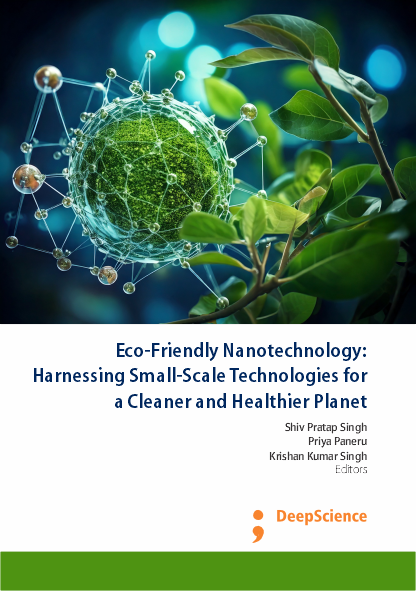Prospective trajectories in nano-enabled sustainable agronomy and ecological resilience
Synopsis
Agriculture, essential for providing food, fibre and fuel, has undergone significant transformations due to new technologies, particularly in response to the growing global population. Precision farming increases the crop production with the minimal use of fertilizers and pesticides, helping conserve resources and protect the environment. Nowadays, nanotechnology plays a major role in sustainable agriculture by enhancing efficiency and food security. Smart nano-fertilizers enable controlled nutrient release, reducing waste and soil pollution, while nano-pesticides offer safer alternatives for pest management. The combination of nano-sensors with Internet of Things (IoT) continuously observing the soil and plant health, allowing for factual decisions in resource use. Nano-enhanced irrigation systems and soil restoration methods further improve agricultural sustainability. Additionally, nano-based intelligent packaging helps in extending the shelf life of produce, thus minimizing food waste. However, challenges like regulatory concerns and scalability must be addressed for broader adoption. Overall, nano-enabled sustainable agriculture can significantly enhance productivity and resource efficiency, requiring future research and policies to support safe and scalable implementation.
Keywords: Agriculture, Future trends, Innovations, Nanotechnology, Sustainability.













